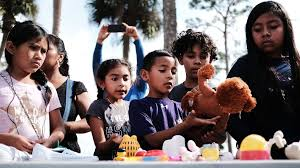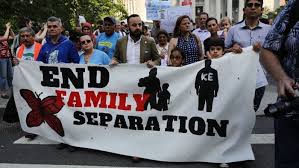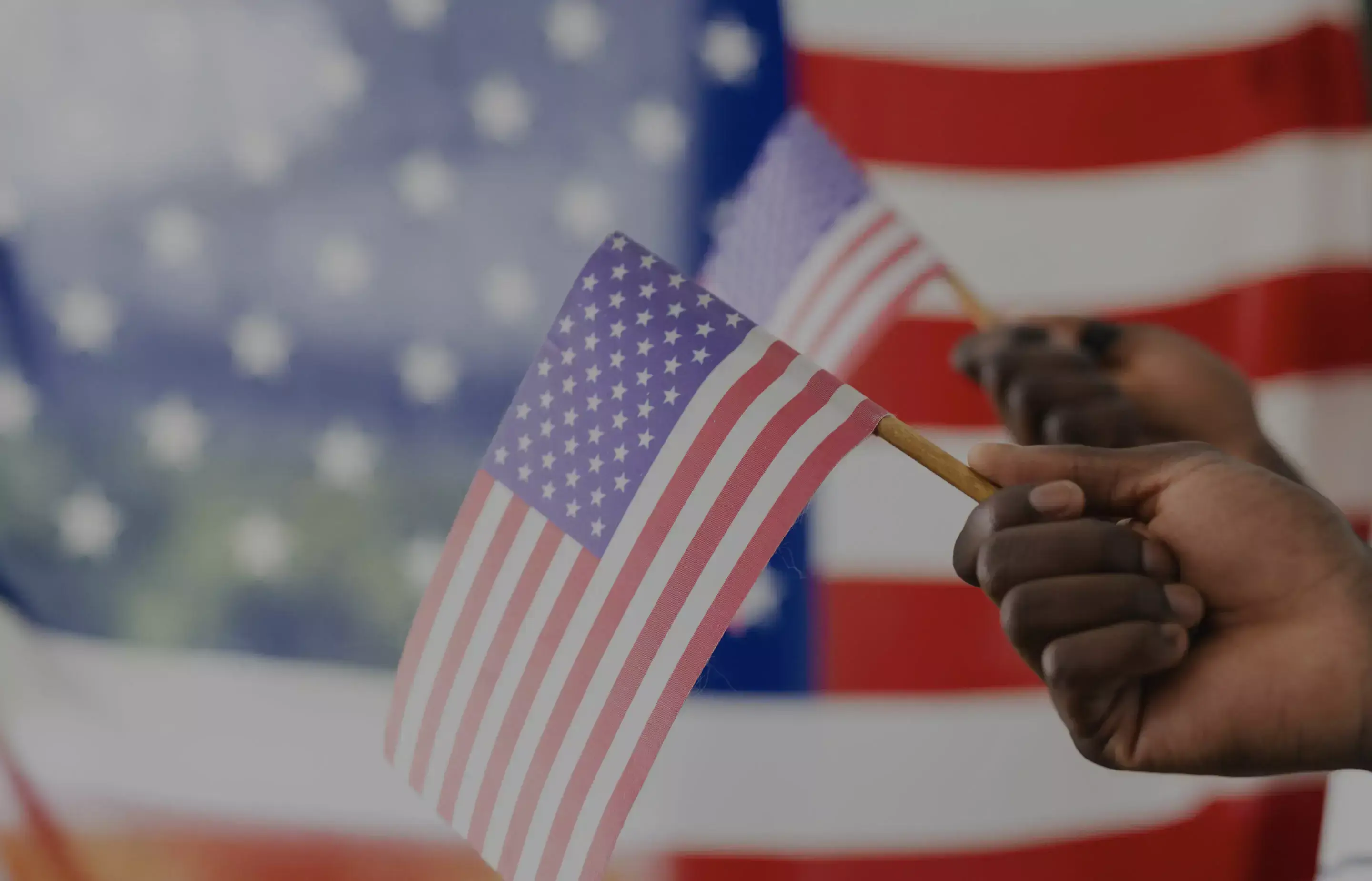 President Trump’s executive order on immigrant children seeks a balance between his “zero tolerance” policy for families crossing the border and ending the practice of separating children from their parents. The June 20, 2018 executive order came after growing criticism of Trump’s “zero tolerance” policy, which calls for prosecution of all immigrants who come to the United States illegally. Trump’s policy required parents and children travelling together to be separated. Parents were referred for prosecution and taken into federal custody. Children were taken to the U.S. Health and Human Services Department, which placed them with sponsors (e.g., family members) or sent them to shelters or foster homes. Under Trump’s executive order, parents will now be detained alongside their children. Although Trump claims that the executive order adequately addresses the fervent public criticism about his immigration policy, the order raises new and unsolved issues.
President Trump’s executive order on immigrant children seeks a balance between his “zero tolerance” policy for families crossing the border and ending the practice of separating children from their parents. The June 20, 2018 executive order came after growing criticism of Trump’s “zero tolerance” policy, which calls for prosecution of all immigrants who come to the United States illegally. Trump’s policy required parents and children travelling together to be separated. Parents were referred for prosecution and taken into federal custody. Children were taken to the U.S. Health and Human Services Department, which placed them with sponsors (e.g., family members) or sent them to shelters or foster homes. Under Trump’s executive order, parents will now be detained alongside their children. Although Trump claims that the executive order adequately addresses the fervent public criticism about his immigration policy, the order raises new and unsolved issues.
Did Trump’s Order End the “Zero Tolerance” Policy?
Simply stated, the executive order did not end the “zero tolerance” policy. Rather, it emphasized that the administration would “rigorously enforce” immigration laws and “initiate proceedings” accordingly. Trump explained that the executive order solves the problem of keeping families together while still “keeping a very powerful border, and continues to be zero tolerance. [There is] zero tolerance for people that enter our country illegally.” Attorney General Jeff Sessions echoed the president’s sentiment, stating that refusing to prosecute adults “would be a disservice to the people of this country.” Sessions continued, “[w]e are going to continue to prosecute those adults who enter here illegally. But we are going to do everything in our power to avoid separating families.”
What Changed under Trump’s Executive Order?
The only element of Trump’s immigration policy that changed is that families will be detained together “where appropriate and consistent with law” and based on available resources. Trump’s order directed the Defense Secretary to provide to DHS any existing facilities available for the housing and care of immigrant families and to construct more facilities if necessary and consistent with law. Heads of executive departments and agencies were ordered to assist with the care and housing of immigrant families with pending court proceedings. Under the executive order, children will now only be separated from their parents if the government has concerns that keeping them together “would pose a risk to the child’s welfare.”
What happens to Immigrant Children who have already been Separated from their Parents?
Between May 5, 2018 and June 9, 2018, at least 2,342 children were separated from their parents. Although Trump has now executed an order to stop the separations, questions remain over what happens to the children who have already been taken from their parents. Recent reports indicate that 522 children have been reunited with their parents and 16 more reunions are pending. The Trump administration is currently releasing its plan for putting families back together. Although the details are uncertain, one thing is for sure—the reunions will not happen quickly.
Under the plan, children will continue to wait in custody and reunifications will only occur once the parents’ deportation proceedings are finalized. The families will then either be reunited before deportation or, if the parent is released from detention, after the parent applies to be the child’s sponsor under the HHS regulations. The DHS explained that it is the parents’ choice whether to be deported with their children and that “in the past many parents have elected to be removed without their children.”
For More Information
Navigating the intricacies of the legal side of applying for a visa is as tough a task. Schedule a meeting with the Pollak legal team today –– we have the insight and the experience to ensure you the best legal counsel for your situation.
––
Karen-Lee Pollak is the Managing Attorney at Pollak PLLC located in Dallas, Texas. She is a frequent speaker, author and blogger on immigration issues. She can be reached at karenlp@pollakimmigration



